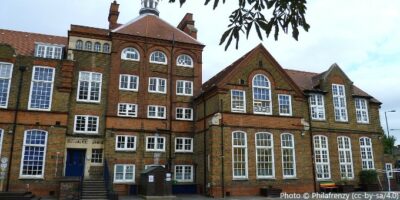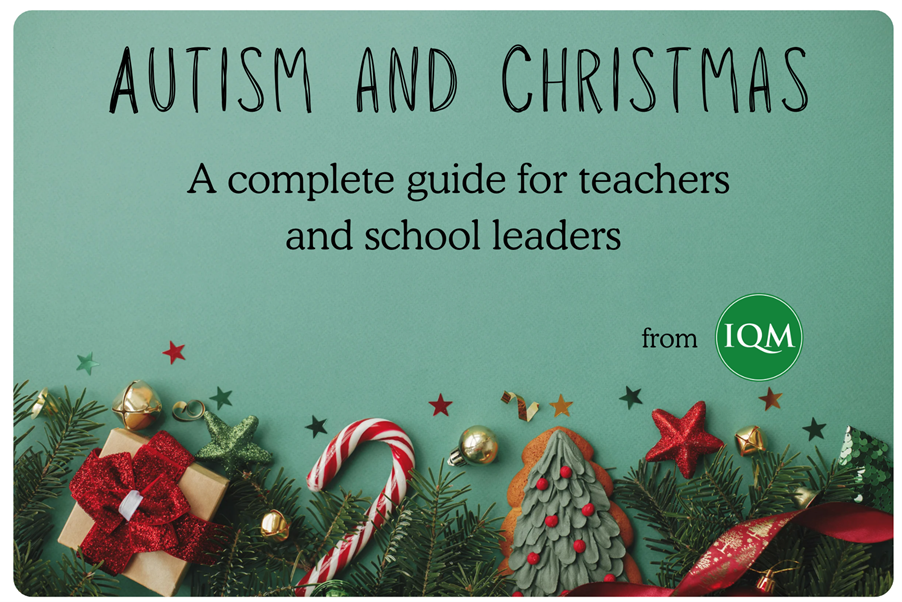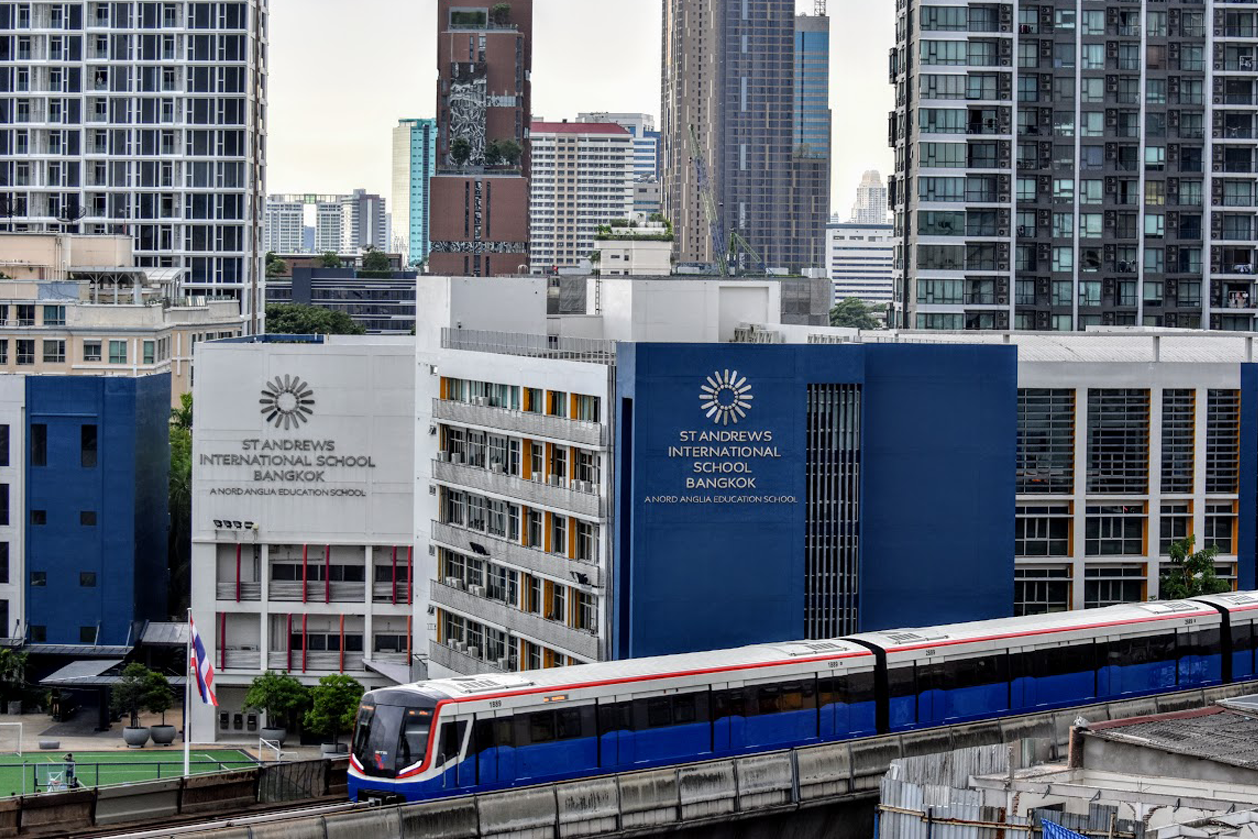Who is IQM?
IQM is the only national inclusion award in the UK. For over 20 years and in over 20 countries, schools, MATs and Local Authorities use the Inclusion Quality Mark to recognise exemplary inclusive practice.
Get in touch for your FREE school information pack today.
Trinity Primary Academy achieves Inclusive School Award
June 13, 2024
Trinity Primary Academy is a calm and harmonious school based in the vibrant and diverse Haringey, London Authority.
The IQM assessor was warmly greeted by the school Principal. From entering first thing in the morning through to the end of the day, it was a pleasure to undertake the IQM assessment in such a calm and welcoming setting.
Walking through the school you see happy children, staff and of course parents.

Trinity Primary Academy is uncompromising in its aspirations for its pupils and staff. The school plans termly Careers weeks for the pupils in preparation for their future. Visitors, such as Marine Biologists and a Forensic Pathologist inspire and enthuse pupils, giving a purpose to their learning and in the words of the Principal, “for a remarkable life.”
The Principal spoke about Inclusion being everybody’s responsibility and this shines through. In classes, there is practical evidence of pictorial timetables, Zones of Regulation support and worry boxes. Pupils with SEND are engaged and are part of their class experience every day. The School Improvement Plan (SIP) priorities reflect the IQM targets, and the CPD map reflects training for the staff, bespoke and whole groups with a focus on meeting the needs of all pupils.
Parents spoke of respect and a feeling of an inclusive diverse community. They valued events the school planned such as celebrating different cultures and religious beliefs over the school year. They particularly enjoyed Eid and the Lunar festival.
The school’s values burst through the very fabric of this wonderful school, from the Principal, staff, pupils and parents you see the values shine through. Harmony is seen in how pupils interact with each other and the adults around them.
The pupils love coming to school and told me that their ‘learning was fun’. Through the learning walks I observed purposeful learning and complete engagement of pupils and adults in an inclusive, ambitious curriculum.
The Principal has created a culture of trust, aspirations and strong relationships. This comes through in conversations with teachers and support staff. They all have a commitment and a sense of responsibility to ensure all pupils make good progress.
The staff are proud of their diverse community, the work they do and also their strong relationships with each other, their pupils and the wider community. Support staff and teachers alike comment on ‘team effort’ and ‘good teamwork’.
Walking through the school we feast our eyes on purposeful, large canvas images of pupils engaged in learning, having fun, working together and pupils working independently. This is then mirrored in every class we visit.
Corridor displays are vibrant, 3D illustrations of topics or events that act as a reminder of the exciting learning that takes place at Trinity Primary Academy.
One of the Year 6 pupils thought that the best thing about school was his friendships. He stated, “the best thing about school for me is the friendships we make, we are always there for each other and always help each other out, also staff find ways to help us solve things.”
Leadership and accountability are everyone’s responsibility. The Principal and leadership team encourage leadership across the school community. Staff, pupils and parents are encouraged to lead. The leadership team also holds themselves accountable through pupil, parent and community views and forums as well as through the usual school improvement cycle.
As part of an Academies Enterprise Trust, the school has Trustees as well as their own Academy Council. The Academy Council is an advisory body that provides insight into the experiences of pupils, parents, staff and the wider community to ensure they understand the community to meet the needs of all their pupils.
There are Safeguarding and SEND Champion Council Leads. There is also a recruitment drive for a Careers Champion Council member to promote and source careers events from the local community. The Academy Council is also committed to promoting localism within the school, which includes local history, culture and local identity.
Through conversations with staff across the school it is clear there is a culture of growth and trust. A teacher stated that, “there are progression opportunities for staff to grow and it is actively encouraged.”
Staff love working at the school and say that it is down to the Principal’s open-door policy. They feel valued and appreciate the personal and professional development opportunities the school offers. Teachers enjoy visiting each other’s classrooms to share their practice. This reflects the accountability of staff to improve their practice.
The Principal has an online platform open to all staff, all the time. It is an anonymous platform where staff can leave their views, opinions, concerns and ideas, at any time. The platform is looked at weekly by the leadership team and a solutions-focused approach is taken and shared with staff.
This is valued by the staff and mentioned in the meetings the assessor was part of during the review day. The Principal shared with me that is just as important to know and understand the views of staff and listen to them.
The school encourages leadership experience for their pupils. There are a variety of roles across the school. House captains, class captains, running clubs, Eco monitors, and pupil leaders leading school tours and hosting the school’s talent show give you a flavour of pupil leadership across the school.
Parents working with the school is evident through the practical work they undertake, maintaining school areas to raising money and running events. The school’s innovative approach to making strong links with their community also involves identifying active members of the Language Community, through coffee mornings. This is an opportunity, for an active member to work with parents to engage with others to support ‘low engagement’ parents with the school and gain an understanding of their needs and how the school and the community can work together to improve outcomes.
The curriculum is ambitious ensuring that the pupils are ready for secondary school upon reaching Year 6. The leadership team have designed their curriculum to reflect their community, as well as, maximising inclusion of the community, for example, by teaching WW2 within the local context, the pupils will visit local bomb sites.
The leadership team evaluates the curriculum annually to ensure their current pupils are still loving their curriculum. The Principal describes the curriculum as wonderful and this is supported by Year 6 pupils telling me, “their lessons are fun.”
Other subjects such as Science and Humanities have been adapted to be community focussed reflecting the local demographic, for example, significant individuals are studied to reflect the school community.
The curriculum is described as broad and is not compromised. Core texts are mapped across the school with the support of a local bookshop owner. The texts reflect the diverse community and focus on pillars of diversity.
Personal, Social, Health and Economic (PSHE) units from the curriculum include Diversity lessons challenging stereotypes. The school celebrates Black History Month as well as Lesbian, Gay, Bisexual and Transgender (LGBT+) History Month. The whole community is involved in these events including pupil assemblies.
The Principal said, “it was important to be brave and have the conviction to push forward, despite how challenging it might be, as it is reflective of their community”. The Academy Council supported the Principal and leadership by writing a letter to parents. The letter emphasised language such as ‘respect and community and bringing the community together’.
It was not easy when the school first introduced this element of the curriculum, however, having experienced the learning and assemblies the pupils took part in, the community is supportive now.
On a learning walk, it is noticeable that pupils with needs are not easily identified as they are engaged in their class in learning. The staff can tell you the adaptions that have been made to meet the pupils’ needs in class.
The school has also invested in tools and resources to ensure they optimise inclusive learning in their classrooms. An example of this is an IT tool called Widget that bridges the gap for SEND pupils by supporting them to read and communicate in class, therefore, maximising class engagement.
In a meeting with a range of pupils from across the school a Year 6 pupil said, “lessons are fun. In Year 6 we have a lot to cover, there is no stress, we are made to feel calm and relaxed, and if we get stuck our teacher helps us. We are given the choice to join early morning learning if we need to. Another pupil said, “the way our teacher teaches us is outstanding! They always help us.”
Parents and pupils also value the extracurricular clubs run by the school. Both groups like the range of clubs on offer. Pupils, especially, enjoy the Glee club. One pupil told me that they were extremely happy to see Wicked at the theatre, as inspiration for the club.
The extra-curricular clubs are arranged half termly and the leadership team ensures that, through data analysis, from pupil attendance, the clubs are inclusive and all pupils have access to their chosen clubs. The clubs are purposeful, and children regularly have opportunities to perform with the local community as well as play sports competitively against local schools.
The school Principal believes, “the classroom is at the heart of everything we do” and there is a real drive every day to achieve excellence in teaching”. The leadership team works tirelessly to understand and identify the needs of their pupils. Therefore, there is a huge drive for responsive teaching, ensuring that teachers are responding to children’s needs within a lesson. To support them in this drive, the school is part of the ‘One World, Instructional Excellence Programme’. The Principal and the Vice Principal lead this, with plans next year to train other members of staff and increase coaching capacity.
Training to support teachers includes CPD such as understanding autism with strategies. This includes reducing cognitive load, breaking down learning and ensuring the classroom environment does not create sensory overload.
The school prides itself on achieving an organised, bright and thoughtful environment. Whilst pupils have their lunch, they have a Nature Garden to look out onto. The Principal shared with me that it was a dead space so they worked with parents, who managed to transform the dead space into a lovely view the children can enjoy whilst having lunch. The school environments lend itself to support all needs, for example, their Forest School is accessed by all pupils each week.
Outdoor spaces are inviting and thoughtfully organised. At break times, the pupils tell me, they enjoy a variety of activities including varied sports and as well as quiet areas to read.
The Principal has set up innovative approaches to help all staff feel empowered to support pupils with need. One such innovation was setting up ‘Solution Circles’. These consist of support staff working together as a solutions-focused exercise. A member of staff brings a problem to the group and as a group, they set about planning an approach, from their wealth of experience, to support the adult and pupil identified.
The strong relationships ensure that teachers can access support with planning for the needs across their classes through subject leaders, year group partners and the SLT.
The school provides an iPad for every child and each term starts with E-Safety Lessons to ensure pupils build on their understanding of keeping safe online. In Early Years the teachers link a school trip to the local area to pupils mapping directions.
Older pupils have access to online platforms to support their homework and also showcase their homework and projects using a platform called Seesaw. Parents also access Seesaw to keep up to date with their children’s learning as teachers upload work undertaken in the classroom. Teachers are now looking forward to piloting a VR programme to further enhance inclusive learning.
The Principal encourages teachers to take ownership of pupil progress. In phase meetings, pupil progress is discussed through professional dialogue. There are also pupil reviews with the Principal, Assistant Vice Principal and SENDCo and the group talks about individual pupils. This discussion feeds into the school provision map and plans are put in place for identified pupils. Extra support is identified with a time frame and specific outcomes or small steps.
The school has a range of interventions to support the varying needs across the school, for example, skilful support staff, as well as teachers trained in reading fluency support pupils to make the required progress or the Reading Lead may intervene to support pupils’ phonic acquisition.
The school ensures there are half-termly reviews for SEND pupils. Teachers and support staff work together to set targets for pupils and have midpoint checks to ensure pupils are on track or may need extra support.
Attendance data is also carefully analysed ensuring that pupil’s absence is top of everyone’s agenda. Due to the diligence and hard work of the staff, the school attendance is higher than national outcomes and Local Authority figures. This is a testament to the targeted work the staff do to ensure pupils are in school learning.
The school is keen to ensure that any data or information is valid, therefore, they take part in moderation across the school and also as part of the Trust as well as engaging with the Haringey Local Authority moderation process.
The school is calm and purposeful. Learning is not interrupted as all pupils are engaged in learning across the school. Learning environments in class reflect the current learning supporting pupils’ recall and retrieval of knowledge and skills.
The Principal firmly believes an important part of the school culture is that all children are included in their class, whilst also recognising that individuals have needs. All classrooms, therefore, have calm areas, Zones of Regulation and worry boxes, reflecting individual and varied needs. The school is fortunate enough to have an onsite trainee Educational Psychologist supporting pupils and staff with strategies.
The school recognises the need to support pupils and staff and finances extra Educational Psychologist visits. The work that is undertaken by staff and other professionals reflects the successful impact through the engagement of all pupils in classes and one-to-one support staff working seamlessly with teachers to support the diverse need.
Support staff are key in promoting independence and only intervening when necessary. They are skilled (through expert training and support) in scaffolding pupils’ work and are timely in reducing scaffolds.
The school promotes positive behaviour management, there is a no-shouting policy. All staff role model School Golden Rules and pupils receive lots of praise. Staff and pupils build great relationships, and staff use and promote positive language with a focus on high expectations. Staff also build good relationships with parents.
Pupil wellbeing is woven through the culture of the school and curriculum. The children experience mindfulness, learning breaks, meditation, regular check-ins and sporting activities throughout the day. Support staff told me they have CPD to support the pupils’ needs and the approach is consistent across the school. The support staff are valued across the school and work closely with teachers to support pupil progress and engagement.
Communication regarding concerns about pupils is shared with all staff who work with vulnerable pupils so that the right support is in place. All the staff are trauma-informed trained, and understand that relationships are key. To support pupils and staff, the transition is well planned to ensure ease of settling each year. Transition books support identified pupils.
Teachers and support staff groups shared with me that behaviour is communication, and they recognise that it is their role to understand what their pupils are trying to communicate.
The Principal sees parents as partners. The school regularly gathers the views of parents, as well as the Academy Council’s work through surveys, allowing parent to air their views. The Academy Council publishes their minutes and actions from their work through the school’s weekly newsletter.
A parent’s view of the school, “when you see your child improving, what else can you ask for”.
It was a pleasure to meet with parents and they spoke about visiting classes to see how their children learn, support with school trips and appreciate the support the teachers give their children in class. The parents enjoy the coffee mornings and are supportive of the coffee mornings planned for the Albanian and Bulgarian families. The parents I met with said they felt the school was safe and their children felt safe. They also appreciate how the school keeps them updated.
The parents also shared that the Principal and teachers are quick to respond to questions on how to support their pupils and to any concerns they may have. They shared that they we proud of the school. One parent moved further away but her children are so settled and happy she travels from their new home to Trinity Primary Academy every day.
The parents also shared that they like to support the active Parent, and Teacher Association (PTA) to raise funds for the school.
There is also evidence across the school of the working partnership that parents have with the school, for example, the Nature Garden that was maintained by a group of parents.
The parents are happy with the regular learning updates from the teachers. Parent’s evening consists of looking at pupils’ books as well as how to support their child at home with the next steps. Early morning meetings are planned to share learning in class and how to support children at home.
Parents receive termly reports and are invited into school to meet with the teachers. There is also an online platform that parents can access to see what their children are learning each week, as well as being able to send messages to the teachers and vice versa.
The Principal told me that Localism is an important part of Trinity Primary Academy. This can be seen through the events and local opportunities the pupils can access. This includes the Language Community Groups, where active members encourage groups of parents to engage through food sharing, informal events and gathering thoughts from these groups on how the school can further sport their pupils and families.
The Academy Council captures the voice of all stakeholders as reflected in the day-to-day challenges of school and community life. The Council sees the community’s needs and looks at ways to meet the needs and overcome barriers within the community.
A recent piece of work looked at parent engagement, in particular low parental engagement. The data identified two groups of parents with low engagement. This led to seeking parent voice and changing how they looked at parental engagement, for example, providing a balance of academic and less formal events, translated posters and coffee mornings for parents. The impact of this project showed higher levels of parental engagement especially, from the two identified groups.
The strong links with the Local Authority Yearly Years team ensure that new parents and vulnerable families are signposted swiftly ensuring they access the support they need as well as meeting new parents in similar situations.
Speaking with the Principal is it clear that the school has many cohesive and impactful links, not only with their local community, where they are capitalising on Localism to support pupils’ aspirations from within their community, but also with the wider community.
Pupils are privileged to part take in the National Gallery’s annual ‘Take a Picture’ event and have their work on display. They are also involved in Royal Academy of Arts events twice yearly. The pupils also take part in the Alexandra Palace ‘North London Book Festival’ allowing pupils to meet their favourite authors.
The school has strong links with a local bookshop and a passionate owner. The strong relationship ensures that new titles are shared with the school and pupils benefit from the high quality carefully chosen books they can access to read for pleasure as well as chosen texts to use alongside the school curriculum.
The school has termly Careers weeks. The school’s plan includes members of the local community getting involved. As well as events giving pupils wonderful experiences and aspirations. The school also works closely with the local food bank, supporting it and also getting support for families when needed.
The school is also mindful of its local area the challenges it presents and its duty to support pupils to keep safe. The school works closely with ‘The Ben Kinsella Trust – Stop Knife Crime’ and runs knife and gang workshops. The local community police offer Junior Citizen workshops on how to keep themselves and others safe.
It was an absolute pleasure to visit this forward-thinking, mindful school that strives to ensure outstanding work across the whole community. The Principal and leadership team are passionate about every child in their school.
The high expectations they have of themselves, their staff, pupils and the community can be seen in the innovative and ambitious work they are doing. I believe that the work they are undertaking around parental engagement is key to making changes for the wider community.
The Principal and leadership team continually self-reflect, evaluate and move forward. Staff are motivated, feel valued and develop strong relationships with each other, their pupils and the wider community. It truly is a great school.
Other Posts

About IQM
The only national award for inclusion in the UK, IQM has been committed to recognising exemplary inclusive schools for over 20 years and in over 20 countries around the world. The three awards allow schools and organisations to celebrate their inclusive practice against nationally recognised framework.
Site Links
© 2026 Inclusion Quality Mark | website developed & cared for by digidoda


